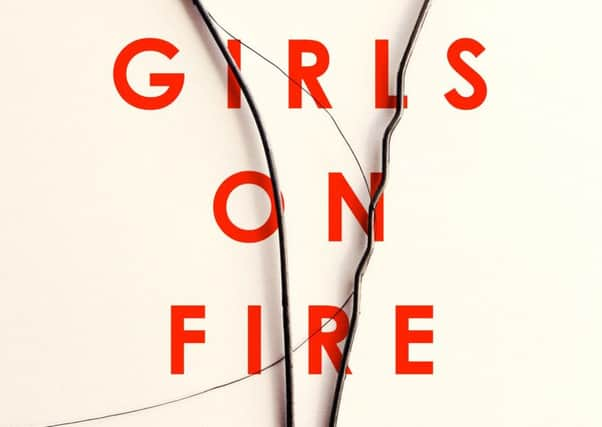Bookshelf: This girl's on fire


Robin Wasserman’s Girls On Fire begins with the discovery of high school student Craig Ellison’s body on Halloween. His death is attributed to suicide, but in the insular world of Battle Creek, it doesn’t take much to instil the fear that there is a darker force at play. For student Hannah Dexter, life has always been pretty run of the mill. But when she befriends teen rebel Lacey Champlain, she is introduced to a whole new world of excess and danger. Nothing it seems can come between Hannah and Lacey, except for golden girl, and Craig’s former girlfriend, Nikki Drummond. Heady, atmospheric and thrilling, you’ll be turning the pages long after you’d planned on putting the book down.
She becomes romantically embroiled with Nikita Slavkin: the “vanishing futurist” of the novel’s title. He is the leader of the group, the brains behind the bizarre operation.
Advertisement
Hide AdAdvertisement
Hide AdThe story is told to us by an elderly Gerty, who has returned to England decades earlier. She’s far from a reliable narrator, but this is an accomplished first novel.
Fingers In The Sparkle Jar: A Memoir by Chris Packham. Ebury, £20. Review by Hannah Stephenson
The diversity and beauty of life is represented by the eponymous sparkle jar in this unconventional memoir from Springwatch presenter and conservationist Chris Packham. It’s written largely in the third person, offering a glimpse of his life from the age of six to 16, an awkward child who became a solitary observer of wildlife. The memoir takes a darker turn in short, italicized chapters dated nearly 30 years later, when he chats to a therapist about his suicidal thoughts. The gaps in information leave the reader longing to find out more about how this wildlife-obsessed kid came out of the depths of depression to make his way in the world.
The Violet Hour: Great Writers At The End by Katie Roiphe. Virago, £16.99. Review by Gill Oliver
Advertisement
Hide AdAdvertisement
Hide AdAmerican academic Katie Roiphe has a track record of tackling tricky subjects. Here, she turns her attention to probably the biggest taboo – death. Following much research, she uncovers how six famous writers and artists dealt with being just days away from their own demise. We learn how Dylan Thomas doubled his debauchery in the days leading to his death. John Updike began to write a poem on learning his days were numbered, while, despite being in terrible pain, Sigmund Freud refused anything stronger than aspirin so he could think clearly. Subtly and with no mawkishness, this book reminds us that the story of death is “intimate, scary, huge”.
The Vanishing Futurist by Charlotte Hobson. Faber & Faber, £16.99. Review by Jane Bradley
In 1914, Gertrude Freely takes up a post as governess to a middle class family in Moscow. Three years later, the Russian Revolution begins and Gerty, a “bookish, scrawny girl”, finds herself part of a left-wing commune, The Institute of Revolutionary Transformation, bent on spreading communism to the masses.
She becomes romantically embroiled with Nikita Slavkin: the “vanishing futurist” of the novel’s title. He is the leader of the group, the brains behind the bizarre operation.
The story is told to us by an elderly Gerty, who has returned to England decades earlier. She’s far from a reliable narrator, but this is an accomplished first novel.